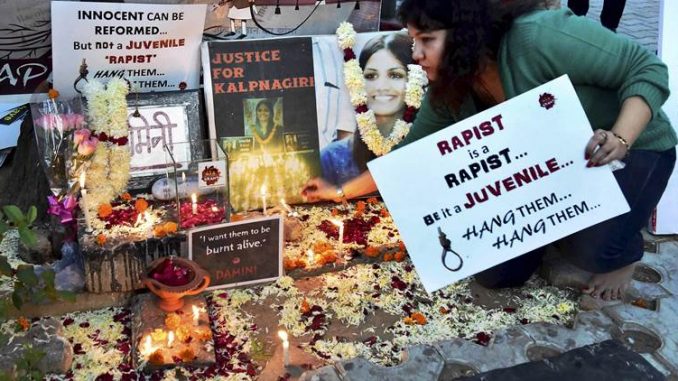
New Delhi : The Nirbhaya gang-rape was a case of “barbaric sexual violence against women” and also against society at large, Supreme Court Justice R. Banumathi observed on Friday, and said that in order to secure social order and security, issues concerning crimes against women need to be tackled on priority basis.
In her observations, Justice Banumathi said that over the past few decades legal advancements and policy reforms have done much to protect women from all sources of violence and also to sensitize the public on the issue of protection of women and gender justice, but still crimes against women are on the increase.
Terming the December 2012 Nirbhaya gang rape case as “barbaric sexual violence against women”, she said the act was in fact against the society at large and in order to secure social order and security, it is imperative to address issues concerning crimes against women on priority basis.
Referring to the National Crime Records Bureau data she said a total of 3,27,394 cases of crime against women were reported in the year 2015, which was an increase of over 43 per cent since 2011.
A percentage change of 110.5 per cent in the cases of crime against women has been witnessed over the past decade (2005 to 2015), she said.
The lady judge, in a bench comprising two other judges — Justice Dipak Misra and Justice Ashok Bhushan, passed a concurring but separate judgement in the case, and suggested that in order to combat increasing crimes against women the root of the problem must be studied in depth and the same be remedied through stringent legislation and other steps.
She, however, felt that stringent legislation and punishments alone may not be sufficient for fighting increasing crimes against women, and said that in our tradition bound society, certain attitudinal changes and change in mind-set is needed to respect women and to ensure gender justice.
“Right from childhood years’ children ought to be sensitised to respect women. A child should be taught to respect women in the society in the same way as he is taught to respect men. Gender equality should be made a part of the school curriculum. The school teachers and parents should be trained, not only to conduct regular personality building and skill enhancing exercise, but also to keep a watch on the actual behavioural pattern of the children so as to make them gender sensitized.
“The educational institutions, government institutions, the employers and all concerned must take steps to create awareness with regard to gender sensitisation and to respect women. Sensitisation of the public on gender justice through TV, media and press should be welcomed,” she said in the judgement.
Among the suggestions she gave on gender sensitisation are that banners and placards in the public transport vehicles like autos, taxis and buses etc. must be ensured, use of street lights, illuminated bus stops and extra police patrol during odd hours must be ensured.
Police and security guards must be posted at dark and lonely places like parks, streets etc., mobile apps for immediate assistance of women should be introduced and effectively maintained, she said.
Source: India.com

Leave a Reply